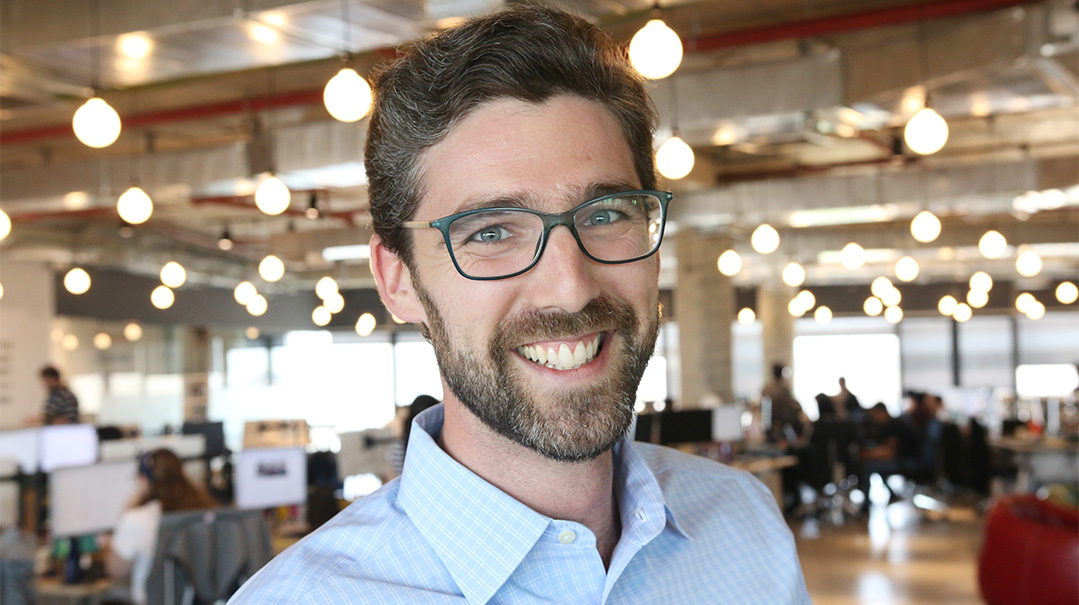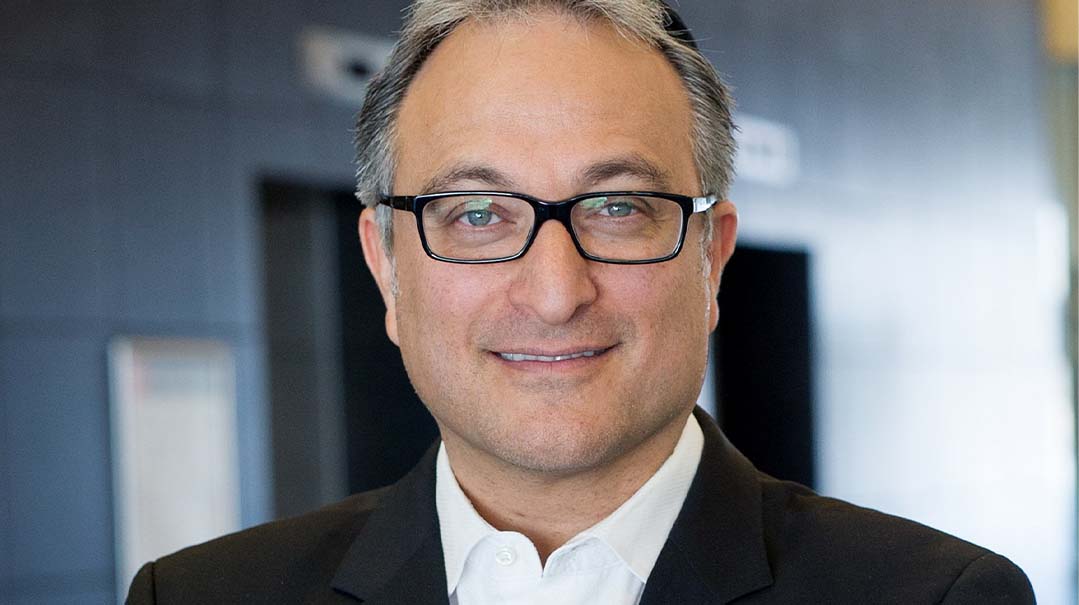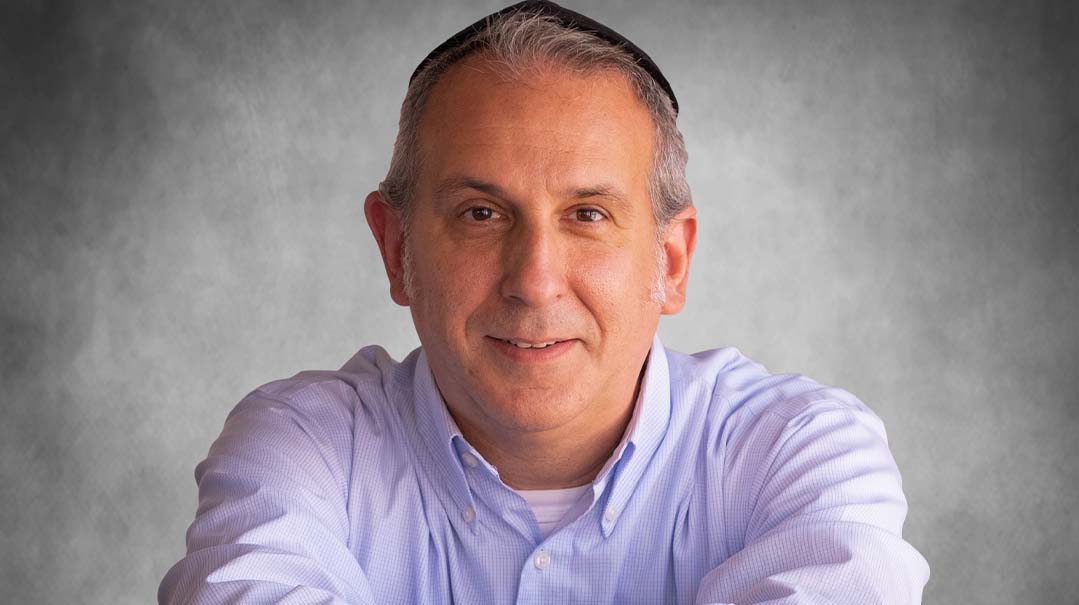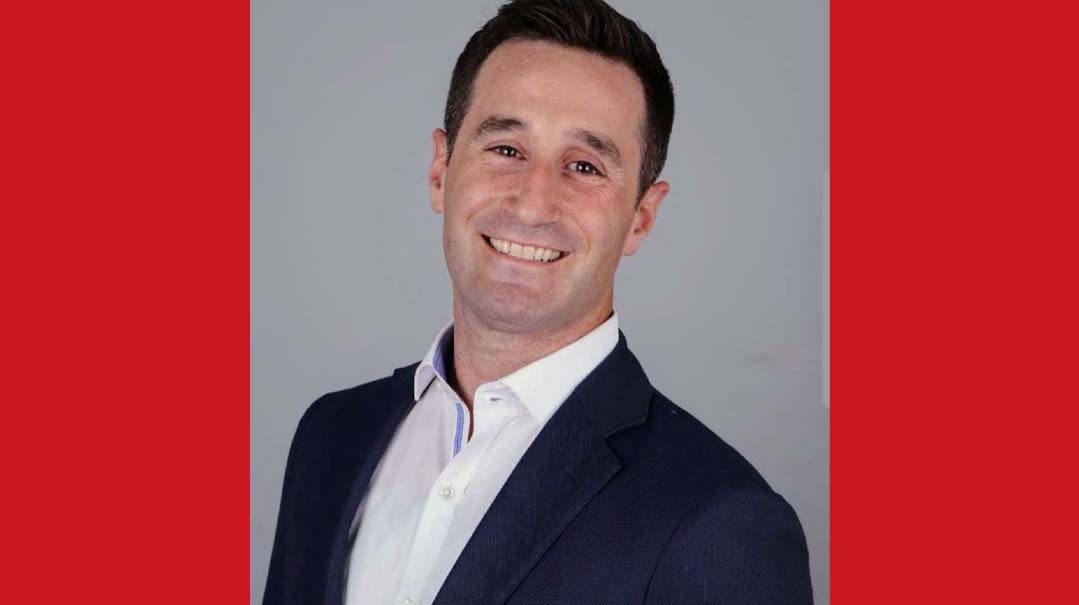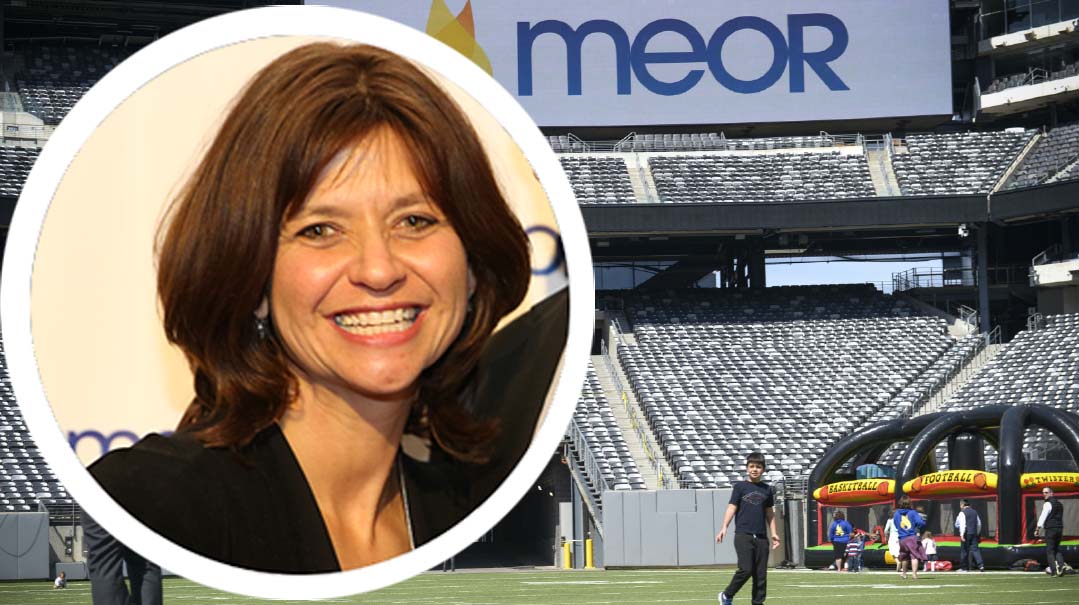Work/Life Solutions with Michael Bloch

"A person is always most happy when he works in an area he loves that speaks to his strengths"
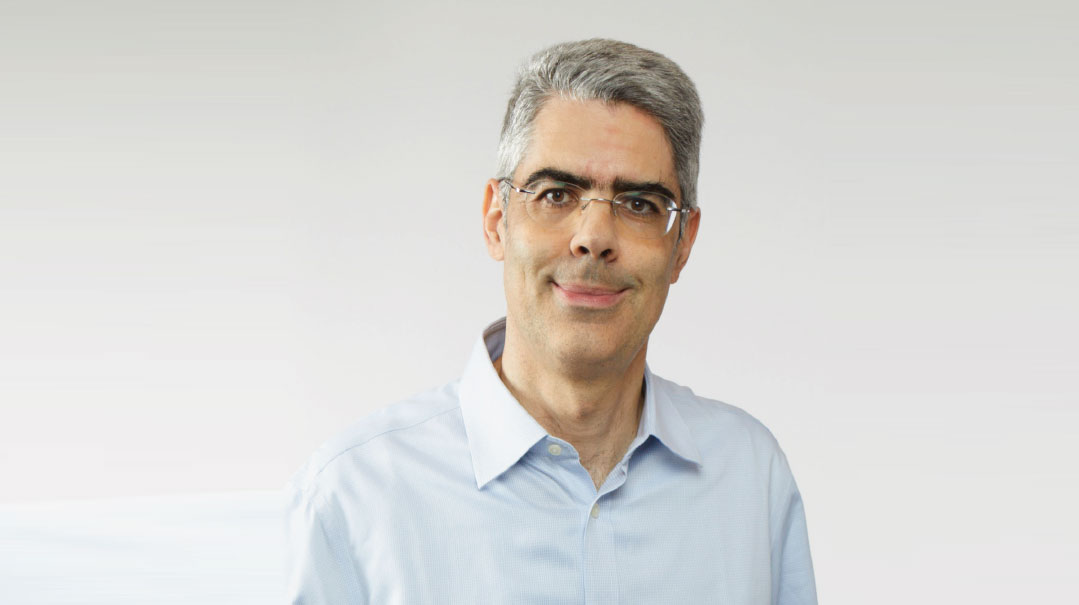
Who: Michael Bloch, Senior Partner at McKinsey & Company, the world’s most prestigious global management consulting firm, with $10 billion in annual revenue and 33,000 employees.
What: Michael, who holds dual Swiss/French nationality and now lives in Israel, has been at McKinsey for 23 years. First, he spent seven years in Switzerland, then five years in France leading the technology practice, and finally relocated to Israel where he’s been living for more than 11 years. At McKinsey, Michael is a global leader in the Business Technology and Operations division, having joined the company as the 25th consultant and helping grow the practice to 5,000-plus consultants today. He has experience working with top executives and boards of large corporations in more than 10 countries, helping them transform their support functions, leverage technology for competitive advantage, and accelerate growth. Michael has served clients across many industries (e.g., banking, insurance, pharma, retail, and industrials) with a special emphasis on large performance transformation programs as well as technology innovation and growth.
Prior to joining McKinsey, Michael held operational roles at Unicible (a Swiss banking technology company) and spent two years doing postgraduate research on the business impact of the Internet at the University of California in Berkeley and at New York University. Michael received a M.S. in Business Information Systems (with distinction) and a B.A. in Economics and Business Administration from Hautes Etudes Commerciales (HEC) at the University of Lausanne, Switzerland.
Why: Reading through Michael’s professional accomplishments, you might assume that he wouldn’t have time for spiritual endeavors. But that couldn’t be further from the truth. Notwithstanding his demanding schedule and responsibilities, he prioritizes his Torah learning — he’s made siyumim on Shisha Sidrei Mishnah, the Rambam’s Mishneh Torah and completed the daf yomi cycle. He also leverages his business acumen to enable Jewish non-profit organizations to maximize their impact. Moreover, while dealing with senior-level executives, Michael’s absolute integrity and impeccable middos create a tremendous kiddush Hashem.
1 of 9 What opportunities or personalities played a role in your career?
I believe in grabbing the opportunities that present themselves and energetically pursuing them, but I’m also not afraid of failure. It can sting and hurt, but I recover relatively quickly.
I remember we once did a study on successful people and wanted to interview our most successful colleagues to ask for their secrets. Interestingly, many of them agreed to be interviewed, but told us they weren’t really representative because they “had just been lucky.” It turns out there is a whole literature on “lucky people,” and they often share common characteristics. They grab opportunities as they see them, fail fast, recover quickly and try something else. As such they might have been massively successful with two opportunities and have already forgotten they tried another eight which didn’t work. What they call “luck” is really entrepreneurship, passion and fast turnaround when things don’t work out.
As such, I tried many things over time, the most significant one being to join McKinsey, to agree to take on the leadership of our French business technology group as a very young partner, too reckless to realize what I was getting into, and then to move to Israel without realizing the challenges of serving a global set of clients from here.
I had always dreamed of joining McKinsey, based on the mystique the firm has projected in the business world. The first time I tried though, I was promptly rejected for being too young and inexperienced. A few years later, two close friends told me about a new technology practice McKinsey was building and which they would be joining, based in Geneva, Switzerland. I jumped on the opportunity to interview again and, this time, was immediately accepted as well.
But the real challenge came seven years later, when, after having become a new partner the year before, I was asked to lead our technology practice in France. I was initially flattered, until I discovered I was the only French-speaking technology partner around. (So the choice was easy!) That leadership experience turned out to be very difficult, but ultimately successful and very rewarding. It was critical to being elected a senior partner and being given freedom to work wherever I wanted. I took it as a sign from heaven that it was finally time to realize my old dream of living in Israel. The real miracle was that, after many years of discussion, my wife finally agreed. Four months later, we packed up the family and made the move.
2 of 9 Which three character traits have played a key role in your career path?
Passion. Once I find something I love, I will invest all I have to master the topic. I love technology, helping others, and learning Torah, and have pursued them all with massive energy.
Helping others. I would have studied to be a doctor if business technology consulting hadn’t grabbed me first. So when I find a client, either an individual or non-profit organization I like and who likes me, I will do everything in my power to make them successful.
Being organized. I grew up in a traditional family and only became religious in my 20s. As such, I had lots of Jewish learning to catch up with. Since living in Israel, I decided to leverage my weekly trips to Europe or the US and learn on planes. Over 10 years, I completed Shisha Sidrei Mishnah, all of daf yomi, and all 1000 chapters of the Rambam’s Mishneh Torah — a large part learned during flights.
3 of 9 What do you do to relax, recharge, or simply have fun? How do you make time for that, and how often?
I’m generally a hard worker, but have always tried to keep time for the family. My assistants over the years knew when scheduling to keep time open in the evenings so I could be with my family. For me, Shabbat is also a critical time to replenish my batteries, both physically and spiritually. I would find it difficult to survive if we didn’t have Shabbat — I would likely be working all the time.
Beyond my family, learning and making sure to get enough exercise to stay healthy, I don’t have time for much else. But I love books, so for me relaxing is either reading or spending time with friends.
6 of 9 What is the most inspiring feedback you’ve ever received? Did that impact what you did next?
Before I realized how little I really know, I used to be quite happy with myself and didn’t listen to others as much as I should have. One of the first things McKinsey teaches new consultants is to release their agenda, listen to other people and not use every interaction as a chance to prove how smart you are. I found it difficult at first, but over time realized that in any area that I thought I did well, there was always someone who did a lot better. That taught me humility. Today, I’m a better listener, and regularly remind myself of the above instructions.
7 of 9 If you were asked to deliver a TED Talk that would be watched by 50 million people, what topic would you choose to speak about? Why?
I would speak about the importance of “smart tzedakah.” I decided early on in my career to be disciplined and generous about our giving, but it took me many years to be smart about it. In the beginning I had only small sums to give away so having a strategy didn’t really matter. When the sums grew, I took time to develop a strategy to increase the impact of that giving. Over the years, I developed seven rules that today guide my selection among so many worthy causes. Examples are to look for organizations which multiply their impact through others (such as those who multiply their internal workforce through volunteers), or that address issues at their root (such as those who give financial education to not get into debt, or train people to get better jobs), to give directly to recipients and avoid chains of intermediaries, and to measure the impact and value delivered for the giving. I believe everyone should develop the rules that work for them. I regularly review my “giving portfolio” to ensure the non-profits I support deliver on my hopes for them.
Over the years, I’ve realized that beyond money, I could also help non-profits by contributing some of my expertise. I was reminded of how Rav Moshe Feinstein ztz”l asked people to donate ten percent of their time, in addition to their money. So I started working every year with one or two non-profits in depth, helping with their strategy, growth plan or operations effectiveness. After speaking with many foundations and philanthropic individuals, I can say a significant number would love to invest more money in non-profit organizations if they could demonstrate practical plans for larger growth and prove the impact they are having in quantified terms. In the last 10 years, I helped about 15 Israeli non-profits go in these directions.
8 of 9 Can you share a time when you had to navigate the tension between your deepest values and the business world?
My work is to help senior executives in large corporations improve the performance of their businesses. Once, I got in the middle of a conflict between two board-level executives. One was straightforward, values-driven and looking for the best for his company, while the other was more focused on his own success, willing to cut corners to get to what he wanted and position himself politically. I did what I thought was right for the company, which the second executive, who was the next CEO designate, perceived as being against him.
Fast forward to this summer, 24 months later, when I learned that this CEO designate had been passed over in favor of one of his peers and was leaving the company to join a much smaller business. His straightforward values-driven colleague was handed over expanded responsibilities, and he immediately reached out to me for help, explicitly mentioning how much he had appreciated my honesty and prioritizing what was best for the business.
Of course, things don’t always end up so neatly, but I never regretted taking a stand for truth and doing the right thing.
9 of 9 If you were advising a young man/woman hoping to launch a career as an entrepreneur, which “dos” and “don’ts” would you share?
A person is always most happy when he works in an area that he loves and that speaks to his strengths (thanks to Rabbi David Lapin, a proponent of the Orthodox Jewish voice as an influential ethical force in the corporate world, for pointing out that the Chovot Halevavot mentions this concept in Chapter 3 of Shaar Habitachon). The Japanese have a similar concept, which they call ikigai – essentially, it’s the intersection between what you love, what you’re good at, and what the world needs. Based on this, I advise anyone to think very carefully through the combination of what they truly love, what their unique strengths are, and what gives them energy, and to think through careers or areas that will enable them to express that uniqueness.
In the religious world, I also advise people to set fixed times to learn, whether alone, in chavruta or in organized shiurim. It is so easy today to lose oneself in work, and technology makes it easy to be literally on 18 hours a day. Without committing time for Torah into one’s personal calendar, for many people it simply won’t happen.
(Originally featured in Mishpacha, Issue 826)
Oops! We could not locate your form.







